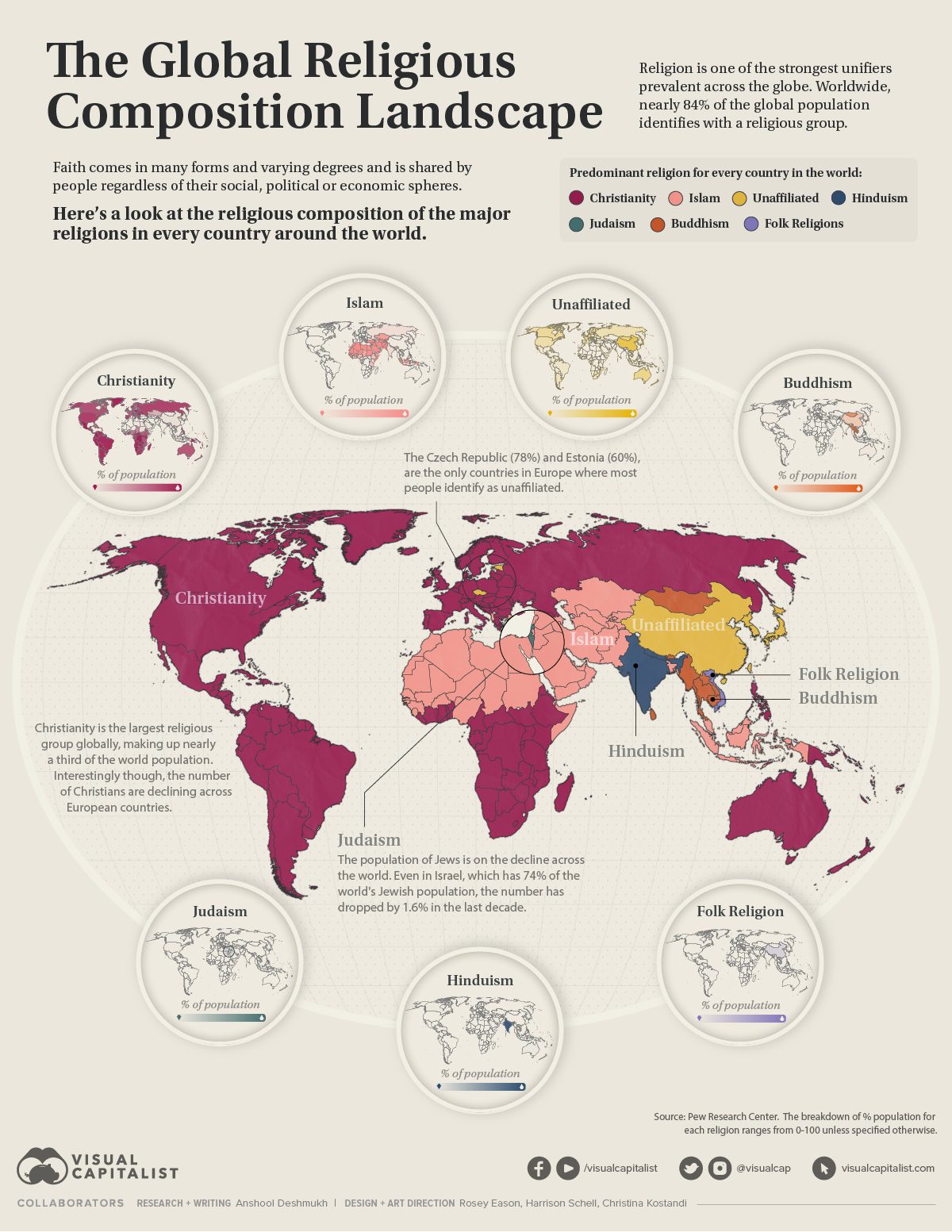Religion has been a significant factor in shaping people’s beliefs and ideologies throughout history. While there may be differences in the practices and rituals of religions, they all emphasize certain fundamental values that promote a meaningful, purposeful, and fulfilling life. This article highlights the 10 values shared by all major religions, including love, respect, forgiveness, service, humility, honesty, responsibility, gratitude, compassion, and unity. These values contribute to fostering social harmony, personal well-being, and world peace. By embracing these universal values, individuals can create a more just and respectful world for all.
10 Values Shared by All Major Religions
Religion has played a significant role in shaping the beliefs and ideologies of millions of people throughout history. Although religions may vary in their beliefs, rituals and practices, a common thread that runs through them is the promotion of certain fundamental values that are essential for leading a meaningful, purposeful and fulfilling life. In this article, we’ll explore the 10 values that are shared by all major religions.
1. Love
Love is a strong emotion that is revered across all religions. It is the cornerstone of all human relationships and promotes the idea of selflessness, kindness, and compassion towards others. The scriptures of all religions advocate the importance of love as a path to enlightenment and as a means of achieving inner peace and contentment.
2. Respect
Respect is a basic human value that is essential for maintaining harmonious relationships with others. It is important to show respect for oneself, others and the world around us. All religions promote the idea of respect towards others, irrespective of their beliefs, gender, race, or social status.
3. Forgiveness
Forgiveness is an act of compassion and kindness that is highly revered in all major religions. It promotes the idea of letting go of resentments and grudges towards others and provides an opportunity for healing and reconciliation. Forgiveness helps to foster a sense of peace, contentment, and harmony in both our inner and outer worlds.
4. Service
The notion of service or selflessness is a central tenet of all major religions. Serving others can take many forms, including acts of kindness, volunteering, and charitable giving. Through service, we can transcend our egoic needs and connect with a greater purpose, helping to make the world a better place.
5. Humility
Humility is the quality of being modest, humble and unassuming. It is an essential value that helps to promote a sense of inner peace, contentment and acceptance of others. The ability to be humble allows us to let go of our ego-driven desires, and connect with others at a deeper level.
6. Honesty
Honesty is an essential value that is necessary for building trusting relationships. All major religions promote the importance of honesty as a means of fostering goodwill and promoting social harmony. By being truthful in our words and actions, we can build a sense of integrity and self-respect.
7. Responsibility
Responsibility is an essential value that helps to promote a sense of accountability for our actions. It is important to take responsibility for our decisions, behaviour and their impact on others. All religions promote the idea of being responsible towards others, the environment and the world at large.
8. Gratitude
Gratitude is a powerful emotion that promotes a sense of appreciation for the blessings that we have in our lives. It helps us to focus on the positive aspects of our lives, rather than dwelling on the negative. All major religions promote the importance of gratitude as a means of fostering contentment and happiness.
9. Compassion
Compassion is the ability to feel empathy towards others, and to take positive action to alleviate their suffering. It is an essential value that is promoted in all religions as a means of promoting social harmony and world peace. By fostering compassion towards others, we can create a world where every individual is valued and respected.
10. Unity
Unity is the quality of being united or working together towards a common goal or purpose. All major religions promote the importance of unity as a means of creating a world that is harmonious, peaceful, and just. By coming together, we can overcome our differences, and work towards a greater good.
In conclusion, although religions may differ in their beliefs and practices, they share a common thread of fundamental values that promote social harmony, unity, and individual well-being. By embracing these values, we can create a world that is respectful, compassionate, and just for all.
